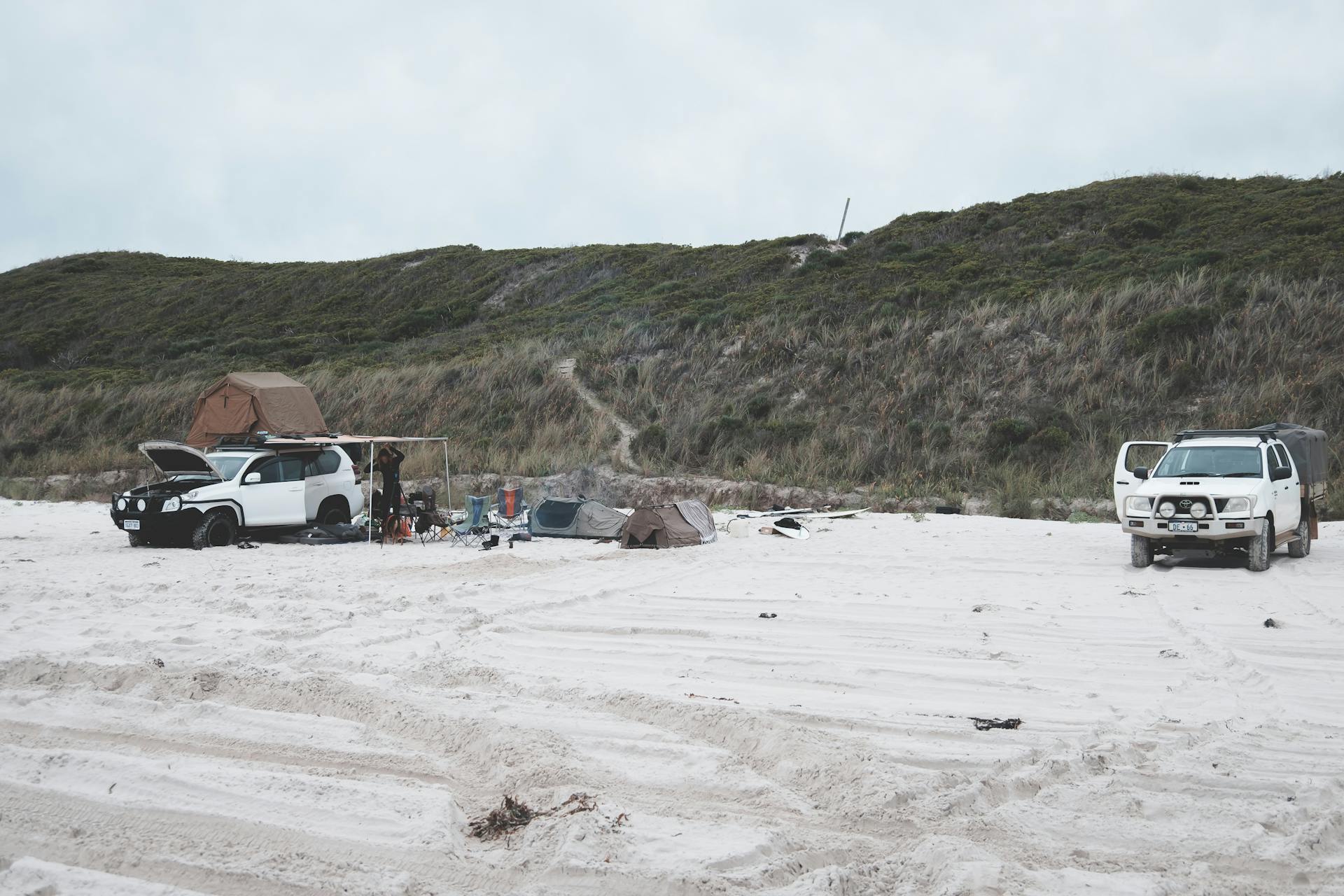What kind of solar chargers work best for camping trips in cloudy UK weather?

Camping trips can be a great way to unplug from daily life and reconnect with nature. However, you may find that maintaining access to power is a challenge, especially for your essential devices like mobile phones, tablets, or GPS units. This is where solar chargers step in. They are portable, lightweight, and use the power of the sun to keep your devices charged. But what if your camping trips are frequently graced by the UK's notorious cloudy weather? Let's delve into which solar chargers work best in such conditions.
Understanding Solar Power
Before we dive into the best solar chargers for cloudy conditions, it is crucial to understand how solar power works. Solar power is the energy generated by converting sunlight into electricity. This process happens within solar cells, often gathered together to form solar panels.
Avez-vous vu cela : How to plan a biodegradable waste management system for a camping week in Cornwall?
Solar panels can be of different sizes and capacities, with the larger panels generally capable of producing more power. However, the energy output of a panel is heavily dependent on the amount of sunlight it can absorb. In sunny conditions, solar panels can generate a considerable amount of power. But what happens when the sun is obscured by clouds?
This is where it gets interesting. While it is true that solar panels depend on sunlight to generate power, they do not completely cease to function in cloudy or overcast conditions. Solar panels can still generate electricity in such conditions, albeit at a reduced efficiency. The light that manages to penetrate through the clouds still reaches the solar panel and gets converted into electricity.
Lire également : What are the best off-the-beaten-path campsites in the Lake District for a tranquil experience?
The Best Solar Chargers for Cloudy Conditions
Knowing that solar panels can still function in cloudy weather, the question now is: what kind of solar chargers are best for camping trips under such conditions? Several factors come into play here.
Panel Size and Efficiency
When choosing a solar charger, one of the essential factors to consider is the panel's size. Larger panels have more solar cells and thus can absorb more sunlight, leading to higher energy output. This can be particularly beneficial in cloudy conditions where the light intensity is lower.
However, size is not the only factor to consider. The panel's efficiency, or how well it converts sunlight into energy, also plays a crucial role. Look for panels that are specifically designed to perform well under low-light conditions. These may include panels made from monocrystalline silicon, which is known for its superior performance under such conditions.
Power Output and Battery Capacity
Another factor to consider is the power output of the charger. This will determine how quickly your devices are charged. Most solar chargers have a USB output, allowing you to directly connect your devices for charging. Some may even have multiple USB ports, enabling you to charge more than one device at a time.
Equally vital is the charger's battery capacity, often measured in milliampere-hours (mAh). A higher capacity means that the charger can store more energy, providing additional power when the sun is not shining. Some solar chargers come with built-in batteries, while others allow you to connect an external battery pack.
Portability and Durability
When camping, portability is a key consideration. The best solar chargers are compact, lightweight, and easy to pack. Some may also have features like a foldable design or a carry handle for added convenience.
Don't forget to consider the charger's durability. Given that you'll be using it outdoors, the charger should be able to withstand various weather conditions. Look for chargers that are water-resistant and have a rugged construction to protect against falls and impacts.
The Role of Clouds in Solar Charging
Clouds do impact the efficiency of solar charging, but they don't make it impossible. In fact, under certain conditions, clouds can even enhance solar power generation.
Clouds can scatter sunlight, causing it to reach the solar panels from various angles. This diffuse light can sometimes lead to an increase in power generation. However, this effect is typically observed in thin, scattered clouds and is less likely to occur in thick, overcast conditions typical of UK weather.
The most significant impact of clouds is the reduction in light intensity. This means that your solar charger will generate less power and take longer to charge your devices. However, by choosing a charger with a larger panel size, higher efficiency, and sufficient battery capacity, you can overcome these limitations and ensure your devices stay powered up during your camping trip.
Recommended Solar Chargers for UK Camping Trips
Now that we understand what makes a solar charger suitable for cloudy conditions, let's look at some of the best options available on the market.
- The BigBlue 28W Solar Charger boasts high-efficiency panels and a 28W power output, making it capable of charging your devices quickly even in cloudy conditions. It is also compact and has a rugged design, making it perfect for camping.
- The Anker PowerPort Solar Lite offers a 15W power output and is made from industrial-strength PET polymer, ensuring durability. It is also incredibly lightweight, making it easy to carry around.
- The Hiluckey Solar Charger is a 25000mAh power bank with four solar panels, ensuring sufficient power storage for your devices. It is also water and dust-resistant, providing added protection from the elements.
Remember, regardless of the charger you choose, the most important thing is to manage your power consumption wisely. Be mindful of your usage and make the most of the power you have stored.
Importance of Solar Charger Features in Cloudy Conditions
When selecting a solar charger for your camping trip under cloudy UK weather, various factors such as panel size and efficiency, power output and battery capacity, and portability and durability should be pivotal. However, understanding the significance of these features under cloudy conditions can help streamline your selection process.
A solar panel's efficiency denotes its ability to convert sunlight into power. Chargers with higher efficiency can tap into the limited sunlight available during cloudy days better than their less efficient counterparts, making them ideal for such conditions. Monocrystalline silicon panels are known for their superior performance under low-light conditions, hence would be a good choice.
The power output of the solar charger determines how fast your devices will charge. Solar chargers with higher power output can provide quicker charging, a handy feature when sunlight availability is sporadic. More so, chargers with multiple USB ports can charge multiple devices simultaneously, making them highly practical for camping trips.
Battery capacity is also crucial, especially during cloudy days. A solar charger with a higher capacity can store more power during the brief sunny intervals, providing a power reserve for your devices when the sun is not visible. Chargers with built-in batteries can be particularly beneficial, although some models allow connection to an external power bank for additional storage.
Portability and durability are essential features for any camping gear. Lightweight, foldable solar chargers are easier to carry and pack, while those with rugged construction can withstand the outdoor elements. Water-resistant solar chargers are also a pre-requisite, considering the likelihood of rain during your UK camping trip.
Conclusion
While the UK's cloudy weather might pose a challenge for solar charging, it certainly does not make it impossible. A well-chosen solar charger can effectively convert the available sunlight into power, ensuring your devices remain charged throughout your camping trip.
The efficiency of the solar panel, the power output and battery capacity of the charger, and its portability and durability are all essential factors to consider when making your choice. Specific models, such as the BigBlue 28W Solar Charger, the Anker PowerPort Solar Lite, and the Hiluckey Solar Charger, have all proven to stand out in these areas, making them excellent options for your UK camping trip.
Managing your power consumption wisely is also important. Be mindful of your device use and capitalize on the stored power to ensure it lasts through the least sunny periods.
In conclusion, the cloudy UK weather should not deter you from enjoying your camping trip. With the right solar charger, you can keep your devices powered and stay connected, even while you are reconnecting with nature.
